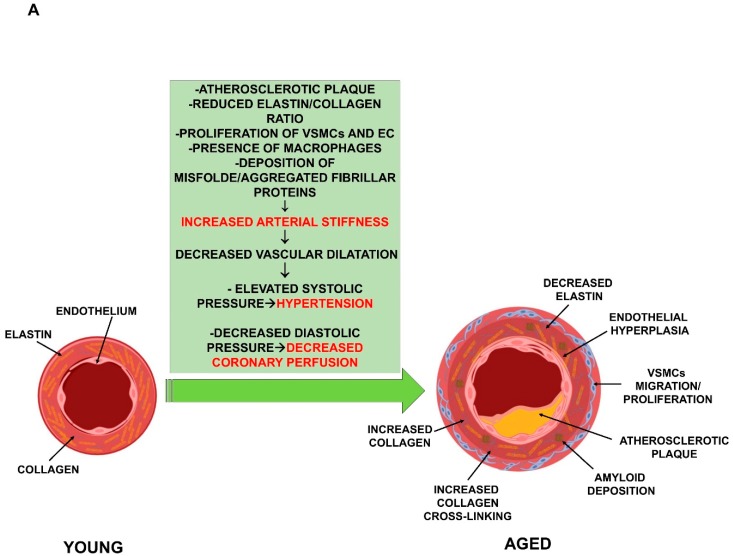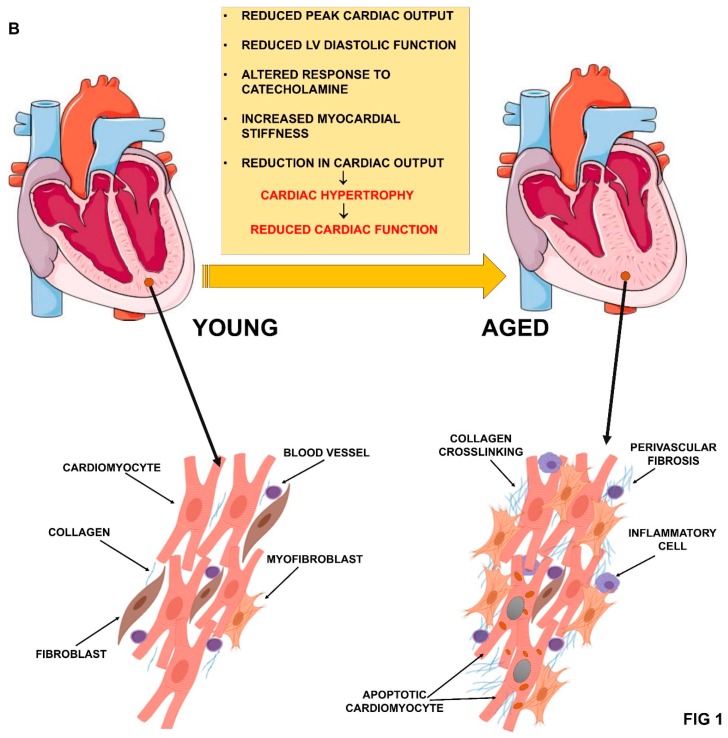Figure 1.
Cardiovascular function deterioration by ageing. (A) Vascular function impairment by ageing. The loss of aorta distensibility with ageing is associated to: (1) increased collagen deposition; (2) the depletion of elastin; (3) the non-enzymatic glycosylation of collagen, which results in the cross-linking of adjacent proteins; (4) amyloid deposition in the medial layer; (5) migration/proliferation of VSMCs and (6) endothelial hyperplasia. The impaired distensibility is responsible for the development of hypertension and decreased coronary perfusion. (B) Cardiac function impairment by ageing. The ageing process of the cardiac system is characterized by a reduction of both peak cardiac-output and left ventricular (LV) diastolic function, an altered response to catecholamine, an incomplete relaxation during early diastolic filling, and increased myocardial stiffness. These responses are compensated by increased muscle mass that leads to cardiac hypertrophy and LV wall thickening. This compensatory mechanism enhances cardiac output at the beginning, but reduces the cardiac function as hypertrophy increases. Fibroblast activation to myofibroblast, increased apoptosis, collagen deposition and crosslinking, inflammatory cells migration and perivascular fibrosis are frequent histologic findings in the old myocardium.


